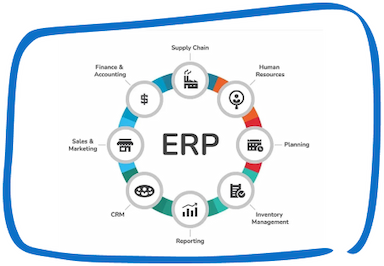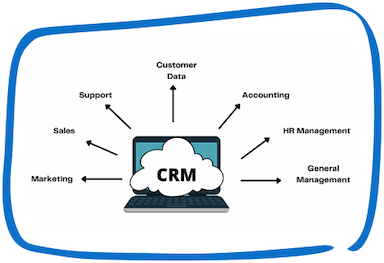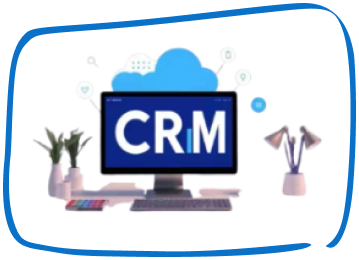Managing an e-commerce business involves coordinating various aspects, each residing in different systems with distinct processes. You must ensure seamless integration across scheduling, inventory, internal communications, and accounts payable. Enterprise resource planning (ERP) tools facilitate this by consolidating resources like supplies and personnel into one system. Integrating your e-commerce platforms with ERP enhances efficiency and reduces complexity in your planning systems.
What is e-commerce ERP integration?
E-commerce ERP integration refers to the seamless connection of your e-commerce and ERP systems, enabling automatic communication between them and eliminating the need for manual intermediation. This integration enables you to access and manage your business data from a single interface, eliminating the need to switch between different software applications. When these two fundamental business platforms collaborate, it can lead to a substantial enhancement in operational efficiency and productivity.
The backend of an e-commerce platform handles tasks such as processing orders, collecting payments, and managing inventory. Many organizations employ separate ERP software for functions like accounts payable, supply chain management, human resources management, and other essential aspects of business operations.
When an e-commerce platform is integrated with an ERP system, these two systems work in harmony to facilitate managerial tasks. The ERP system centralizes and synchronizes all data, providing a unified location for information. This synchronization can also automate various logistical processes, greatly streamlining operations and ultimately boosting productivity.
Importance of ERP integration with E-commerce
There are a limited number of exceptional enterprise resource planning (ERP) solutions available for integration with your online store. This process will enhance both the shopping experience for your customers and the efficiency of your store. Furthermore, it contributes to customer satisfaction by facilitating seamless and accurate transactions. Let’s explore some of the numerous advantages that come with integrating ERP and eCommerce.
Enhanced Customer Satisfaction:
Integrating ERP software into your eCommerce operations helps your business engage with customers on a personal level and build trust. It’s not just about automating processes; providing accurate order tracking information and real-time inventory status on your web store not only boosts operational efficiency but also fosters customer trust. Customer satisfaction becomes a powerful ally, surpassing many other marketing techniques.
Real-time Data Availability and Insights:
ERP-eCommerce integration ensures that your eCommerce store always displays up-to-date inventory levels, preventing the acceptance of orders for out-of-stock items. Moreover, it takes into account quantities sold or ordered on the eCommerce site in near real-time. Timely access to inventory information is crucial for procurement decisions, reducing the risk of lost sales and customer dissatisfaction.
Improved Data Insights:
With ERP integration, you gain access to financial clarity through cash flows, balance sheets, and income statements. The integrated solution allows you to track orders, customers, leads, customer service interactions, taxes, shipping, and delivery times. All data, including customer details, orders, payments, and shipping information, is seamlessly transferred and synchronized with the ERP software. The more business data integrated into the ERP system, the more accurate and comprehensive the information available for driving business transformation. This integration also aids in budgeting, planning, and strategic development, creating a solid foundation for your business strategy.
Streamlined Financial Processes:
Efficient ERP systems should have the capability to automate various aspects of accounts payable and accounts receivable. By integrating your ERP with your e-commerce platform, you can ensure that every live sale is promptly reflected in your ledger, provided that robust finance features are already in place. If you’re using separate accounting software, integrating it with your ERP setup is also advantageous. Failure to integrate financial operations into your ERP may necessitate manual communication between programs, leading to time wastage for employees and the potential for data entry errors.
Efficient Inventory Management:
ERPs empower businesses to oversee inventory location, quantity, and cost through a unified system, thereby automating critical processes and minimizing human errors. Real-time inventory updates guarantee that you always have visibility into when it’s time to reorder, reducing the risk of stockouts, back orders, and delayed order fulfillment. This is particularly crucial for high-volume sellers and businesses with multiple warehouses or a diverse range of products.
Unified Customer Relationship Management (CRM):
A robust CRM component within your ERP simplifies the handling of customer inquiries. It allows you to spend less time searching for the right account and more time enhancing service and customer retention. The consolidation of customer data across various channels streamlines omnichannel reporting, ensuring that each purchase is correctly attributed to the respective customer. Additionally, built-in communication tools enable automated outreach to specific customer segments with discounts or promotions.
Efficient Shipping and Distribution:
In conjunction with inventory management, a well-rounded ERP should empower you to efficiently manage all aspects of shipping information, distribution, and order tracking. The most effective software solutions automate repetitive tasks such as generating and printing shipping labels and creating order forms. This not only simplifies the workflow for warehouse workers but also reduces the likelihood of manual errors, leading to a smoother and more error-free operation.
Steps to start ERP Integration with E-commerce:
As you prepare to initiate the process of integrating your ERP (Enterprise Resource Planning) system with e-commerce, you should be aware of several key steps to formulate your ERP integration strategy.
- Identify Your E-commerce Apps and Platforms. The initial step, while seemingly obvious, is to determine the specific platforms you intend to integrate with your ERP. Your business may rely on a core e-commerce platform, or you may utilize a variety of apps and platforms to manage different channels or sectors.
- Identify Critical Data. Clearly define the data that holds the utmost importance for integration to ensure its prioritization and accuracy. This could encompass various types of information, such as orders, customer data, or financial records.
- Identify Manual and Inefficient Processes. Evaluate how your employees allocate their time and identify tasks that are repetitive or prone to errors. For instance, you might notice a backlog of invoices in accounts payable or difficulties in conducting manual inventory checks at the end of each quarter. These are the tasks that need automation post-integration.
- Determine Your ERP Requirements. Determine the type of ERP system that suits your needs and is compatible with your existing e-commerce platform. Consider factors like whether you prefer an on-site ERP hosted on your own servers or a cloud-based solution. Your choice may depend on data volume and security considerations. Additionally, explore the different ERP system models, including generalist all-purpose systems, highly customizable modular systems, or comprehensive software suites.
- Choose Integration Methods. Decide how you want to carry out the integration between your e-commerce platform and ERP. You might have options such as leveraging your e-commerce platform’s API, utilizing native e-commerce integration features provided by your ERP, or opting for a third-party solution with a pre-established integration process.
Get started on E-commerce ERP Integration:
To sum up, the process of integrating your e-commerce systems with an ERP solution allows these two platforms to work harmoniously and efficiently. This inter-platform communication enables the automation of routine tasks. This feature streamlines critical business processes and ensures that accurate business data is readily accessible to decision-makers.
The initial step towards successful integration is to assess your existing systems. Ensure that your ecommerce platform is up-to-date and operating smoothly.
When you’re ready to initiate the integration process, Penieltech is here to assist you. As a leading e-commerce platform, Commerce seamlessly integrates with your ERP system, automating the synchronization of your inventory, orders, customer information, and shipping details. Would you like to delve deeper into this integration? Watch our brief introductory video to get started, or feel free to contact us for a free consultation.
Speak with Our Team!
4.9 Stars
1k+ reviews on






